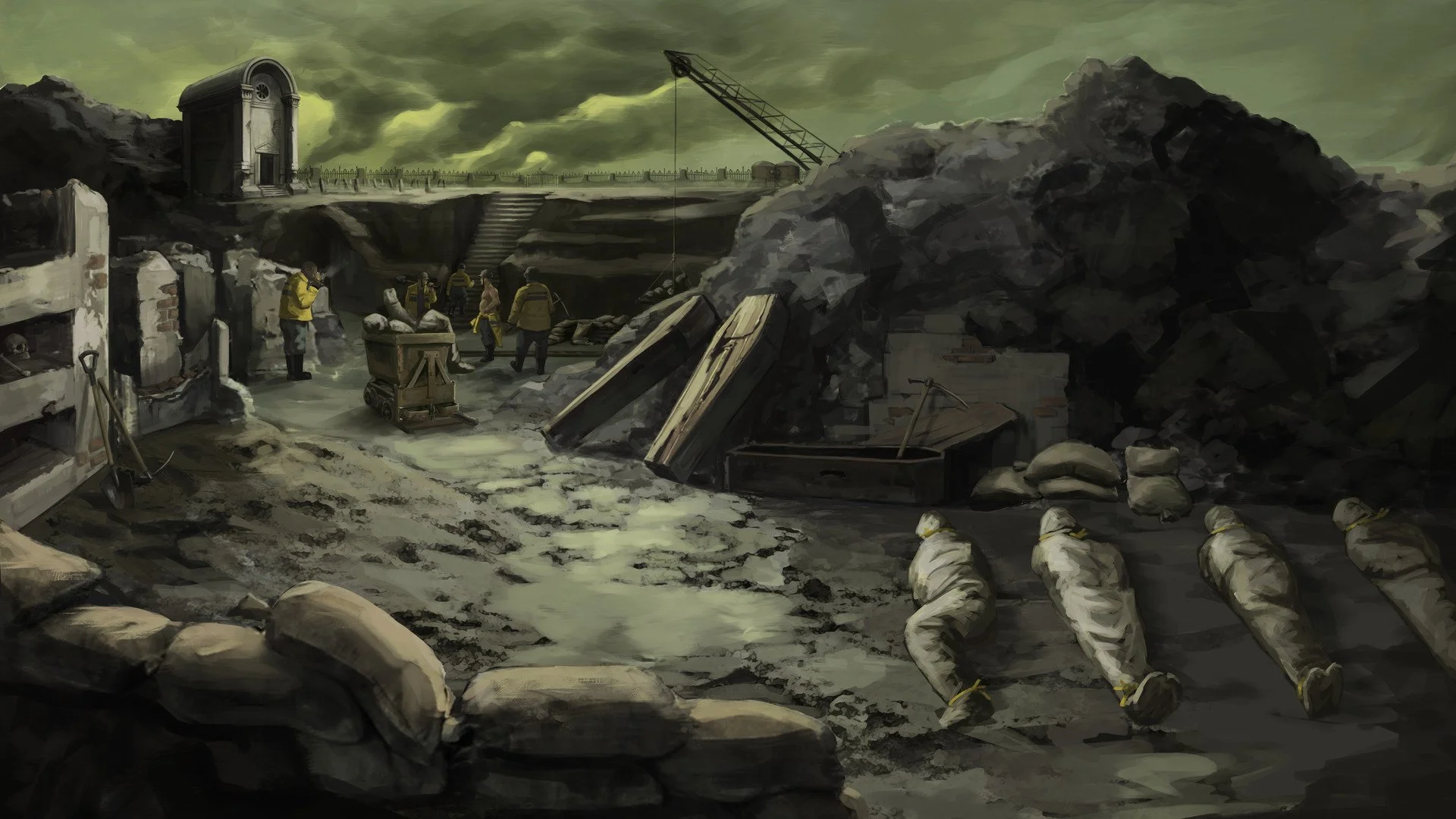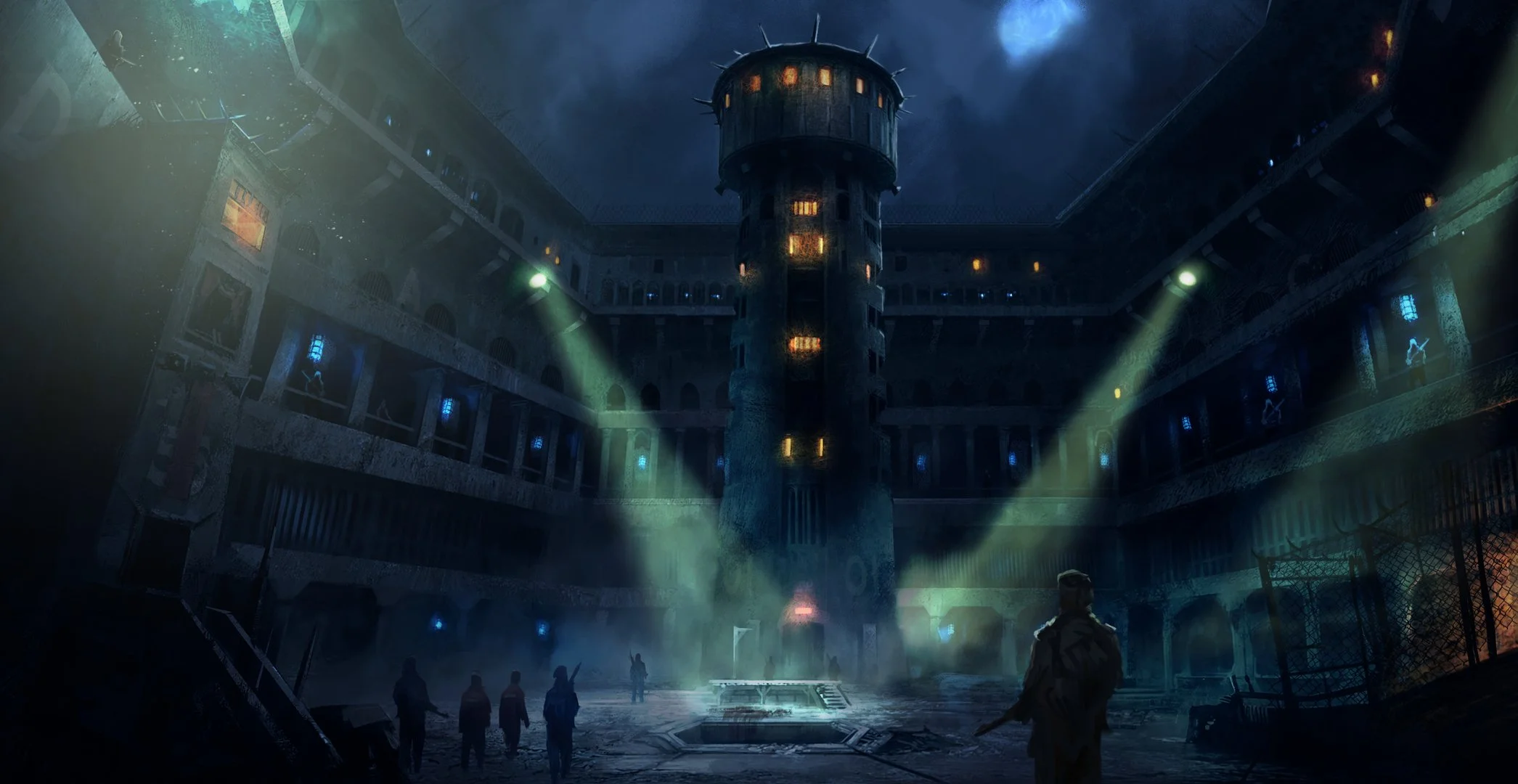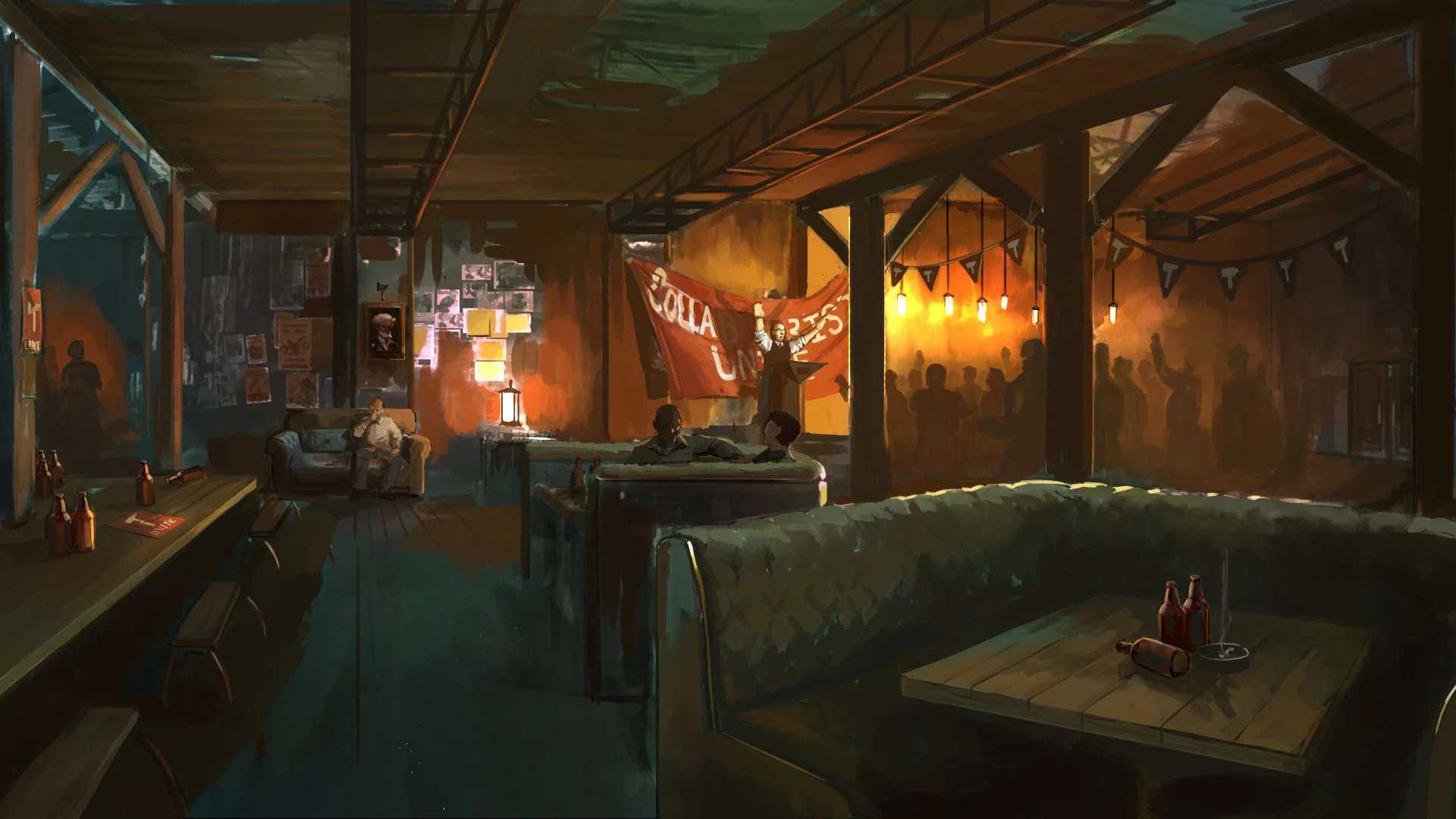Review | Duskpunk - Break Your Chains
In the unforgiving, Hobbesian world of Duskpunk, you are worth more dead than alive. As a soldier, your purpose is to die on the battlefield fighting in the name of your divine Emperor, and then be rendered into plasm — a miracle fuel that powers the Empire, derived from liquified human bodies. You dodged this fate by being taken for dead on the battlefield, and then escaping the plasm-yards where the bodies of your comrades became coal for the holy furnace of the Emperor's crusade. This is the War to End the World, and the shift whistles of the artillery factories are the horns of angels, blowing at the end of time. The bureaucracy of war is unrelenting, and soon there are “recruiters” looking to correct the clerical error of your survival. This is your introduction to the city of Dredgeport, where you arrive with three coins and an obliterated ankle. In but two months’ time, it will look very different.
To eke out an existence in Dredgeport, you’ll need to manage a number of needs jockeying for priority. Your energy depletes rapidly, and you need money to buy food. Your options to earn money are slim at first: beg on the streets, pick pockets, or work a brutal shift in the factories. Unsurprisingly, these ventures raise your stress level, as do the nightmares that wrack you each night. As your stress rises, the virtual dice that determine your success will “break” and start to roll zeros, making it harder to get ahead. There is a street drug called Solace which will remove a big chunk of stress, but it has its limits. It is extremely expensive, controlled by a violent gang, and loses effectiveness with repeated use. You’ll also have to watch your health, for if you get too injured… Well, you can imagine. All of these existential pressures combine to create the tension of a life balanced on a knife edge — yours, but also Dredgeport’s.
The horror of this image is the realization they’re not putting bodies in the ground.
If the stress and dice remind you of the hit Citizen Sleeper games, you’ll find the perspective and cadence of Duskpunk to be very familiar. Developer Jamie Patton, a.k.a. Clockwork Bird, cites it as a major influence. In fact, Duskpunk adopts so much of Citizen Sleeper’s mechanics that myself and others believe it’s the first Sleeper-like, and this extends to its central themes. Like Citizen Sleeper, it also leans heavily into body horror. The plasm-yards are as explicit as a still-beating heart in a ribcage broken open to the sky, but there is a subtler terror at work. “It immediately portrays a deep violation: someone, or something, has seized your body,” writes Wallace Truesdale of body possession in Citizen Sleeper 2. In that game, your antagonist Laine hijacks your body, riding it like a particularly malevolent loa. No one remote-controls you in Duskpunk, but whether you are being hunted by recruiters set on sending you back to the trenches, or scrounging for Solace to quiet your nightmares, it becomes clear that your body does not belong to you — it belongs to the State. You have been seized, in the end, by the scaffolding of oppression built around you.
As far as that State is concerned, you are not a person with dreams, but a resource meant to be consumed. This is true of the entire underclass of the Empire. Where Citizen Sleeper is concerned with loss of agency at an individual level, Duskpunk engages with it at a structural level. Nobody literally controls you in Duskpunk because it’s not required; people of your ilk are already made complacent through fear, violence, and addiction. The way this is written in Duskpunk actually made me more uncomfortable than when Sleeper’s body was being physically hijacked, because I can relate more to the former. I’ve never met a gangster who can RDP into someone else’s brain, but I know the state monopoly on violence run amok when I see it.
The panopticon allows observation of prisoners without them knowing if they're being watched or not.
Despite inviting comparison to Citizen Sleeper, Duskpunk stands on its own. In some cases, it even evokes the desperation of survival better than Citizen Sleeper, through less forgiving pacing. Particularly in Citizen Sleeper 2, it was trivial to reset Laine’s timer for hunting you down, and so I was able to leisurely amass resources and never broke any dice. This led to a mechanically carefree romp through the stars that didn’t possess the feeling the narrative sought, of staying just one step ahead of Laine. Duskpunk provided the challenge I was looking for, and I was constantly riding the razor’s edge of failure, which added tension to the storytelling. Even when I was doing well, stress would climb, threatening to send me into a failure cascade.
Ideally I would take restorative actions to lower my stress, but time was often against me, as manifested in the ticking of the game’s many clocks. The pacing of major story beats is controlled by these clocks, another Citizen Sleeper mechanic, in turn borrowed from tabletop game Blades in the Dark. They count down the progress of an ally, or the arrival of a foe. These are all things which require time — your most limited resource of all — and time spent staging a burglary is time not spent forging a bond with the factory workers. Even in a very successful playthrough, where I took care to space out events, I was not able to complete every character’s story. This was frustrating because the characters are compelling, with complex motivations that don't always align with yours or others, and I wanted to see how their stories ended. Also, I did technically complete them, but the timing was so tight the game just didn't register their completion before the Point of No Return triggered. Yet, I found it satisfying and realistic that I wasn’t able to get everyone on my side in the end.
I hope that more developers are inspired to make Sleeper-like games, so we can see how the genre evolves in form and theme. So far, both Citizen Sleeper and Duskpunk deliver a message of optimism: that resisting an unjust regime is a worthwhile thing to do, even in small ways like creating communities of mutual aid and defence. Contained within that message is the reality, that you are worth much, much more to the world alive than dead.









